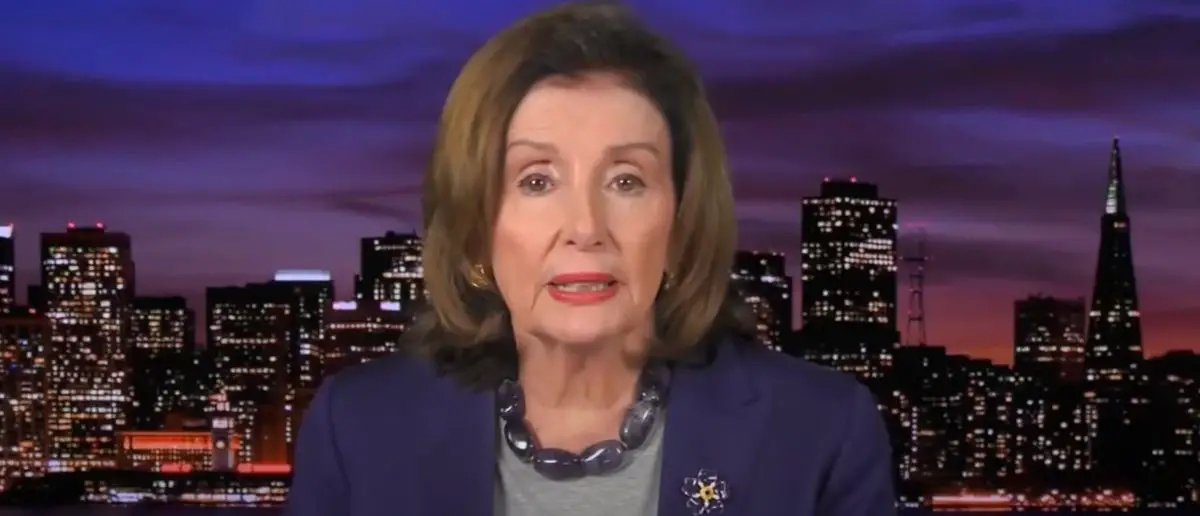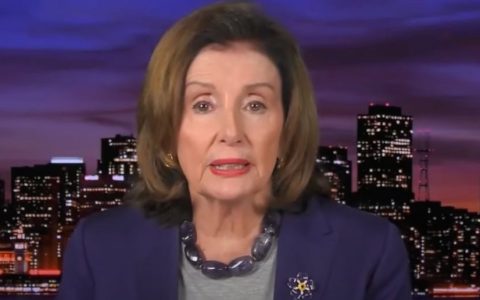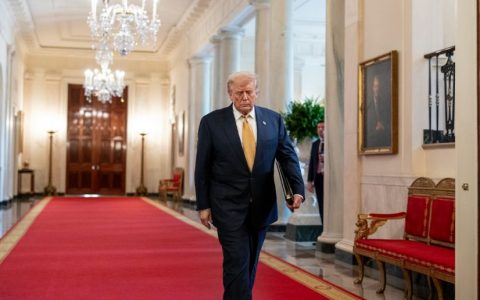
The Trump admin is flipping Washington, D.C. upside down. Nothing will be the same.
And now Trump’s DOJ has launched an investigation that has massive implications for the Bill of Rights.
Trump’s DOJ Champions Religious Freedom with Unwavering Resolve
The Department of Justice (DOJ) under the Trump administration has emerged as a steadfast guardian of religious liberty, taking unprecedented steps to protect the rights of faith communities across the nation. In recent months, the DOJ has ramped up its efforts, filing critical legal interventions, launching targeted initiatives, and confronting laws that threaten sacred religious practices. This renewed focus signals a clear commitment to defending the constitutional protections afforded to people of faith.
One of the DOJ’s most significant actions came in response to a Washington state law signed by Democratic Governor Bob Ferguson. The law mandates that Catholic priests disclose information obtained during the confessional regarding child abuse or neglect, explicitly denying clergy the exemption granted to other professionals for privileged communications. The DOJ swiftly opened an investigation, recognizing the law’s potential to infringe on religious freedom.
Bishop Thomas Daly of the Spokane Diocese stood firm in the face of this legislation, declaring that priests would remain “committed to keeping the seal of confession – even to the point of going to jail.” His resolute stance highlights the gravity of the issue, as the law pits sacred religious duties against state mandates, creating an untenable choice for clergy.
Assistant Attorney General for Civil Rights Harmeet Dhillon sharply criticized the Washington law, stating on X, “Washington’s new law forces priests to choose between violating their faith or breaking the law. That’s unconstitutional.” Her words resonate with the administration’s broader mission to safeguard religious institutions from government overreach, ensuring that faith communities can practice without fear of retribution.
In April, Attorney General Pam Bondi convened cabinet members for a pivotal meeting of the Task Force to Eradicate Anti-Christian Bias, established through a Trump executive order. This task force represents a proactive effort to confront and dismantle systemic hostility toward Christian communities, addressing a long-standing concern among faith leaders and advocates.
The DOJ’s commitment extends beyond policy meetings. In March, the department indicted an individual accused of setting fire to a Mormon church, sending a clear message that acts of violence against religious institutions will face swift justice. Such actions demonstrate the administration’s determination to protect houses of worship from physical and ideological attacks.
Andrea Picciotti Bayer, director of the Conscience Project and a former DOJ civil rights attorney, praised these efforts, noting, “These key efforts show that this pattern and practice is ending.” She emphasized that the DOJ’s actions align with the expectations of Americans who value religious liberty, marking a departure from previous administrations that often overlooked or undermined these rights.
Harmeet Dhillon, in an April interview, pointed to the “open hostility to religion in many sectors of our society.” She highlighted the DOJ’s use of federal statutes, including the Religious Land Use and Institutionalized Persons Act (RLUIPA), to protect religious institutions. “We’ve brought several cases in the DOJ Civil Rights Division to protect houses of worship, Christian and others,” she said, showcasing the administration’s inclusive approach to defending all faiths.
RLUIPA, a critical tool for safeguarding religious assemblies, ensures that zoning and land use regulations do not discriminate against religious institutions. The DOJ has leveraged this law effectively, filing statements of interest in April to support an Islamic organization in New York and Christian churches in North Carolina and New Hampshire. Additional statements in March backed Christian churches in Santa Ana, California, and Pennsylvania, reinforcing the administration’s proactive stance.
The Trump administration first launched the Place to Worship Initiative in 2018 to raise awareness of RLUIPA’s protections. This initiative has empowered religious organizations to navigate local regulations confidently, ensuring their right to establish places of worship is upheld. The DOJ’s consistent application of this law has fostered a more equitable environment for faith communities.
In contrast, the Biden administration’s DOJ used RLUIPA to support faith-based homeless services, such as suing a Georgia city in December over efforts to close a United Methodist Church-affiliated homeless shelter. While these actions addressed specific issues, they lacked the comprehensive vigor seen in the Trump DOJ’s approach to religious liberty.
Former Assistant Attorney General Kristen Clarke, in a May 2024 letter, reminded state and local officials of their RLUIPA obligations, particularly for religious social service facilities like group homes and soup kitchens. “Our work in this area suggests that litigation is far less likely if local officials are aware of RLUIPA and consider its protections early,” she wrote, advocating for preemptive compliance to avoid legal battles.
First Liberty senior counsel Jeremy Dys noted a marked difference in the Trump DOJ’s approach, stating, “The Trump DOJ is much quicker to launch in defense of religious liberty than the prior administration.” He cited the DOJ’s recent filing of two statements of interest in religious land use cases, a significant increase compared to just four over the past 11 years. This accelerated response underscores the administration’s prioritization of faith-based protections.
Dys further elaborated, saying, “It’s one thing for Congress to pass a law like RLUIPA. It’s an entirely different thing for an administration like this to say, we take that seriously and want to see it enforced at the local level.” He warned that without DOJ enforcement, local governments could trample the civil rights of religious entities, making the administration’s proactive measures all the more vital.
The Biden administration’s DOJ faced criticism for its selective enforcement, particularly for prosecuting pro-life activists while largely ignoring attacks on churches and pro-life pregnancy centers. Dhillon vowed that this pattern “was going to change,” signaling a shift toward equitable application of the law under Trump’s leadership.
Following the Supreme Court’s 2022 decision to overturn Roe v. Wade, CatholicVote reported hundreds of vandalism incidents, break-ins, and firebombings targeting churches and pregnancy centers. Dhillon noted, “The FACE Act can be used to protect clinics where women get counseling about their options for abortion, and 200 of those have been violently attacked, firebombed, picketed and otherwise been obstructed over the last few years with zero action from the DOJ.” The Trump DOJ’s commitment to addressing these disparities promises a more balanced approach.
Stay tuned to the DC Daily Journal.





